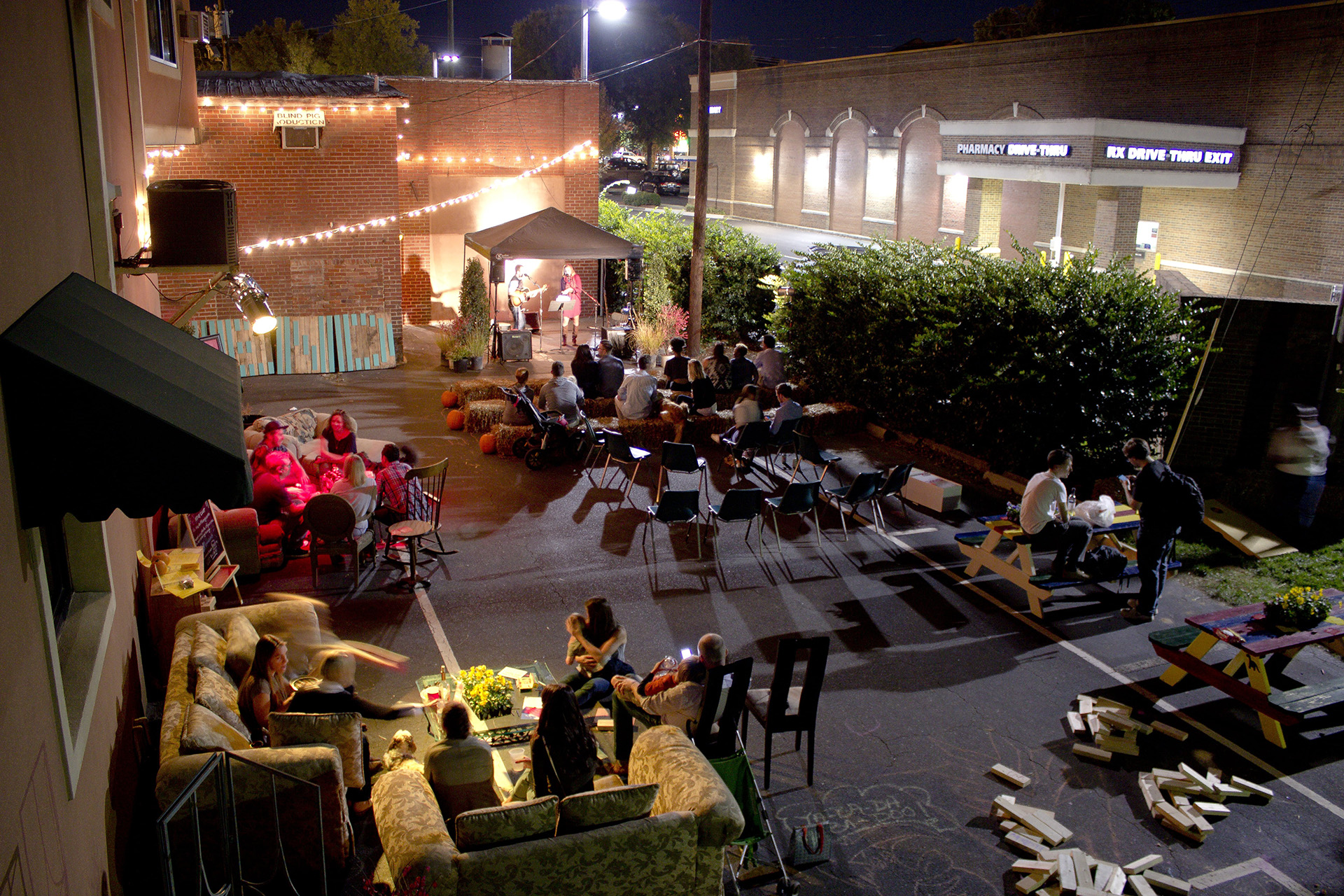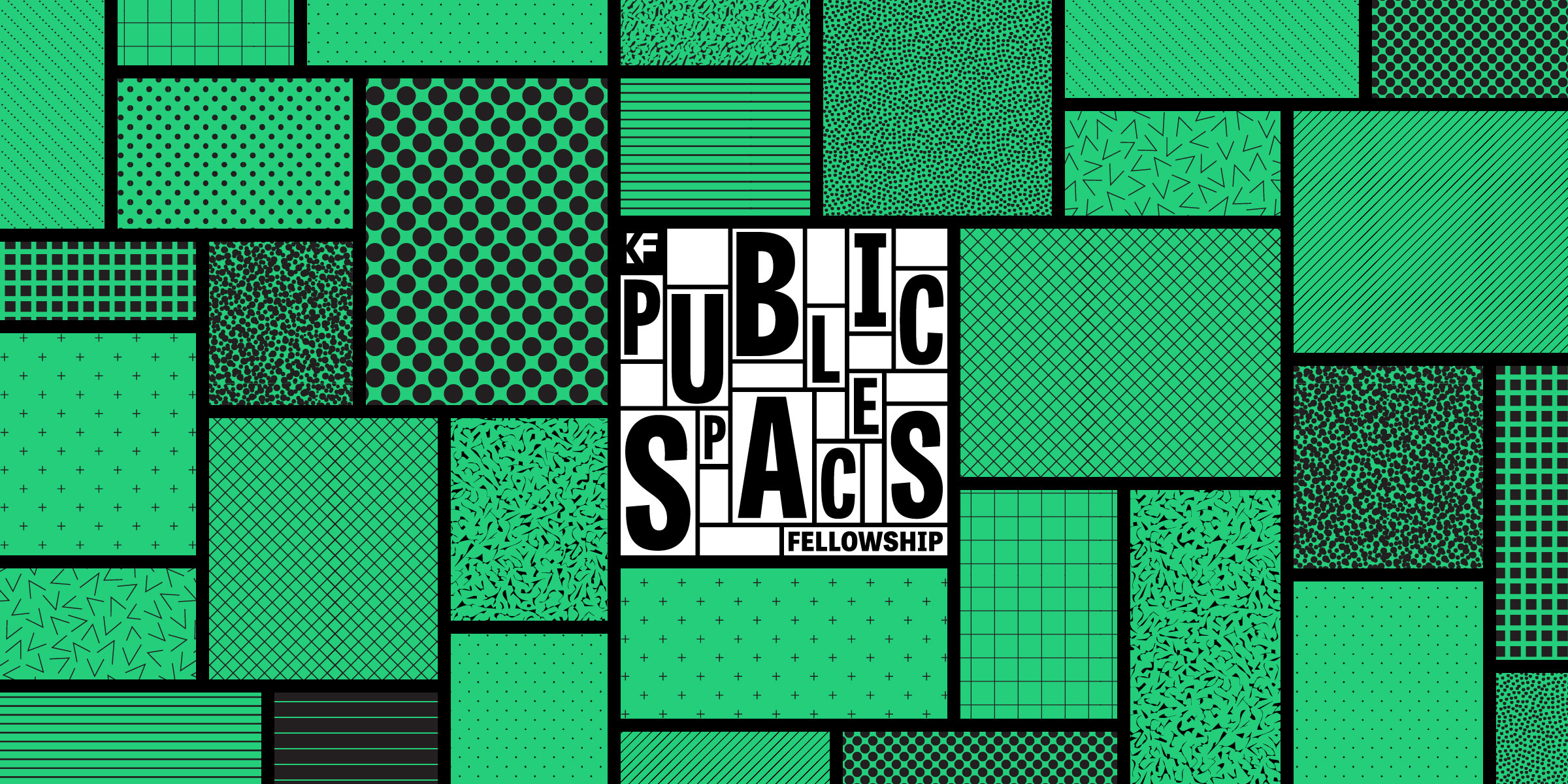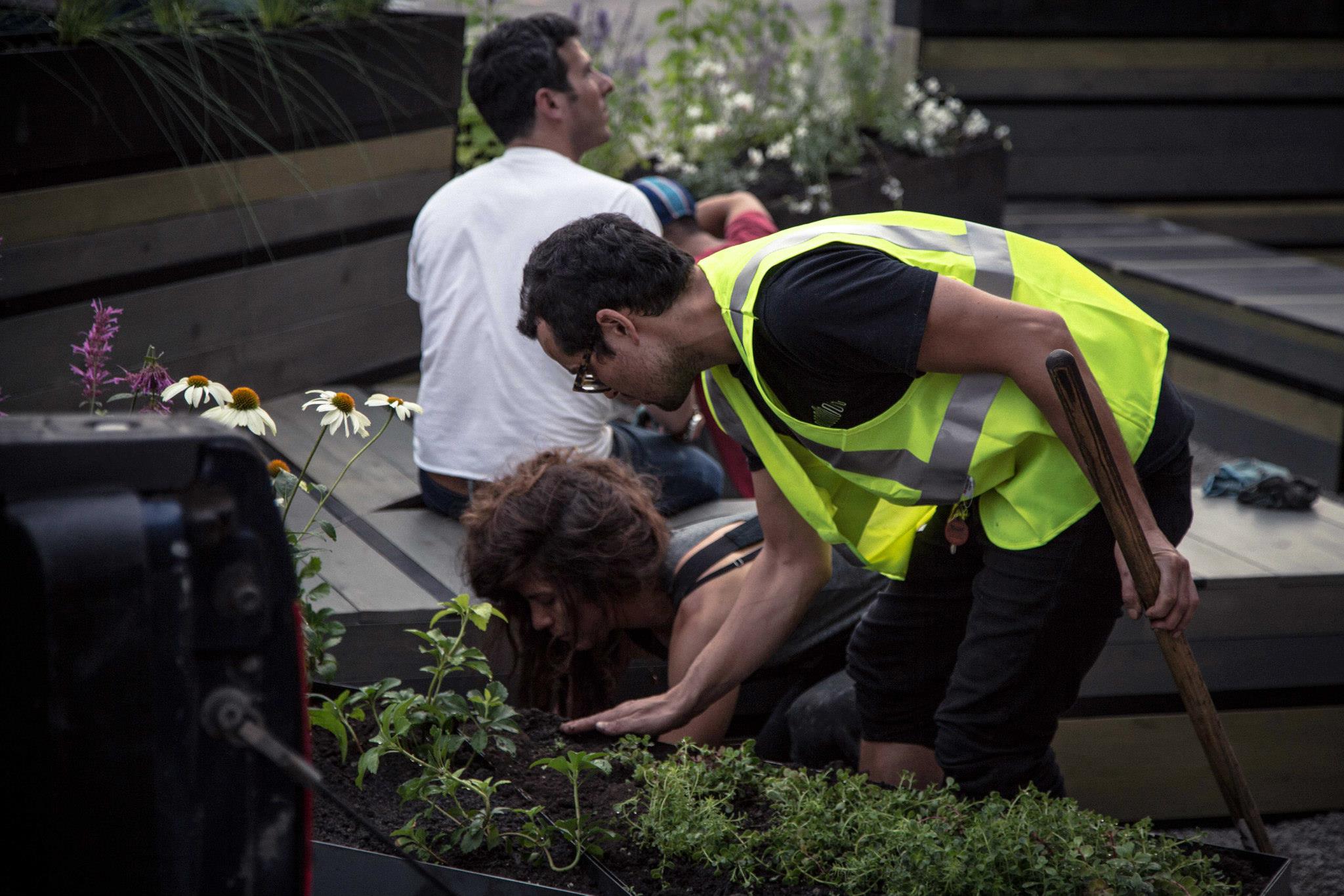Introduction
One of the ways Knight Foundation has supported more informed and engaged communities is through a set of investments focused on public life: the spaces and places where people come together to participate in community. The goal is to connect and engage residents in their communities through more parks and public open spaces, bike and pedestrian lanes to enable people to connect, and programming that draws people together to share a common experience. Through this work, Knight has found that quality public spaces strengthen community bonds, increase civic engagement and create more opportunities for diverse communities to gather together and learn from each other.
To support and spark public life efforts, Knight Foundation made a series of grants seeking to inspire and prepare city leaders to promote public life more effectively in their communities. To build local leadership, programs exposed participants to new possibilities and provided access to national experts. The goal was to catalyze leadership and commitment to public life that would prove durable.
Activities included study tours to leading example cities, such as Copenhagen; a series of public life events and competitions that provided temporary and “pop-up” installations; fellowships for dozens of emerging leaders; a set of research tools that participants could draw on; and a variety of convenings around public art, design and city planning.
There were nine different grants across four grantees: 8 80 Cities, which seeks to create public spaces great for an 8 year old and an 80-year-old and transform cities; Better Block, which shows community members they have the power to change their neighborhoods and shows city leaders how changes would work through temporary installations; Gehl Institute, which conducted research to expand advocacy for public life; and the League of Creative Interventionists, a network of community leaders using art and culture to reimagine cities through time-limited projects in public spaces.
These grants were oriented around supporting the cultivation of public spaces and public life in communities to support several goals, including that:
- A more robust public life would attract and retain talented residents, who value well-designed public amenities.
- Public life would enhance interaction in public space and would help people push their communities to better address the needs and wishes of residents. This would be realized through inspirational interventions, including study tours and temporary demonstration projects.
- Public space activities and outcomes would reach a diversity of people from different economic and racial backgrounds. There was an aspiration that a diversity of residents interacting more with one another would support interaction and the promotion of social capital in ways that would help promote opportunity for everyone.
To assess the work done by the grantees, Knight Foundation asked Street Level Advisors and Pathline Consulting to review the programs and their impact. Based on a series of interviews, a survey, and research into grantee reporting, this report outlines their findings.
Grantees at a Glance
8 80 Cities, which creates public spaces great for an 8-year-old and an 80-year-old to transform cities. It provides leadership development and funding for young civic innovators with unique solutions to improve public spaces, transportation and civic engagement in their cities. 8 80’s activities include study tours to Copenhagen and direct work in cities. Twenty community leaders also are chosen each year to participate as Emerging City Champions.
Better Block, which shows community members they have the power to change their neighborhoods and shows city leaders how changes would work through temporary installations. It seeks to create opportunities for communities and their existing and emerging leaders to gain exposure to and training from urban planning experts, civic innovators and architects from around the world through global symposiums as well as study tours to show successful examples of initiatives around the world.
Gehl Institute, which conducted research to expand advocacy for public life. Gehl offered trainings and public programs as well as developing tools for the study of public space and public life. As of April 1, 2019, Gehl Institute focuses exclusively on the Public Life Data Protocol, an open data standard.
League of Creative Interventionists, a network of community leaders using art and culture to reimagine cities through time-limited projects in public spaces. Its fellowship program identifies and catalyzes passionate neighborhood residents to discover their leadership and co-create what they want to see in their communities. The program provides each fellow with an artist stipend, guides, resources and tools to reimagine their neighborhood with powerful acts of culture and also access to a valuable national network of peers and mentors.
Key Findings
Inspiring new activity and leadership
There is clear evidence that the programs succeeded in inspiring community leaders to strengthen public life, and in some cases influenced participants’ career trajectories. Multiple public life programs were expanded or replicated by local leaders, and several new organizations were created.
Attracting investment
Grantee activities led to increased public and private investment in public space and life. Public investments included protected bike lanes and other bicycle infrastructure, as well as funding for parks and green space. One city created a new Office of Public Life. In almost all examples of increased government investment in public space, interviewees cited the study tours as a critical contributing factor. In two cases, grantees worked to ensure that bond funds, each totaling more than $40 million, incorporated public life considerations.
Influencing public policy
Programs led city officials to improve public life decision-making processes. In several examples, temporary interventions inspired local officials to incorporate new processes to reach a broader cross-section of residents, and to reconstitute public committees that had long been dormant. Almost a quarter of surveyed Copenhagen trip participants established a bicycle plan for their cities, 12 percent created a bicycling/pedestrian committee, Macon reconstituted a dormant bike committee and is working on a bike plan and 5 percent now have bicycle safety courses planned.
In addition to these impacts, some critical strategic questions also emerged:
Inspiration vs. escalation
The programs have clearly served to inspire individuals and many said the programs raised their visibility and supported their leadership. However, some participants hoped for more support on logistics, financing and policy processes to help them transform inspiration into concrete outcomes.
The right model and approach
A few interviewees questioned whether the foreign cities visited were the best model for all U.S. communities given differences around issues like comparative racial diversity and economic inequality.
Inclusive and authentic engagement
Several people interviewed wanted to ensure that the projects had diverse participation at all levels, from grantees to those leading community interventions to the public being served. Greater diversity among leadership teams contributed to more inclusive community participation in local programs and events, and lessened concerns that activities might contribute to displacement of current residents.
Holistic approach
Findings suggested that further coordination across strategies and grantees could be beneficial. Participants sometimes worked with more than one grantee and grantees sometimes partnered on events. But such partnerships were more accidental than intentional. There was a sense that increasing these connections in more intentional ways would benefit participants and the public.
About the John S. and James L. Knight Foundation
Knight Foundation is a national foundation with strong local roots. We invest in journalism, in the arts, and in the success of cities where brothers John S. and James L. Knight once published newspapers. Our goal is to foster informed and engaged communities, which we believe are essential for a healthy democracy. For more, visit kf.org.
-
Community Impact / Press Release
-
Community Impact / Press Release
-
Community Impact / Article
- Supporting Public Life in American CitiesExternal Content / Website




